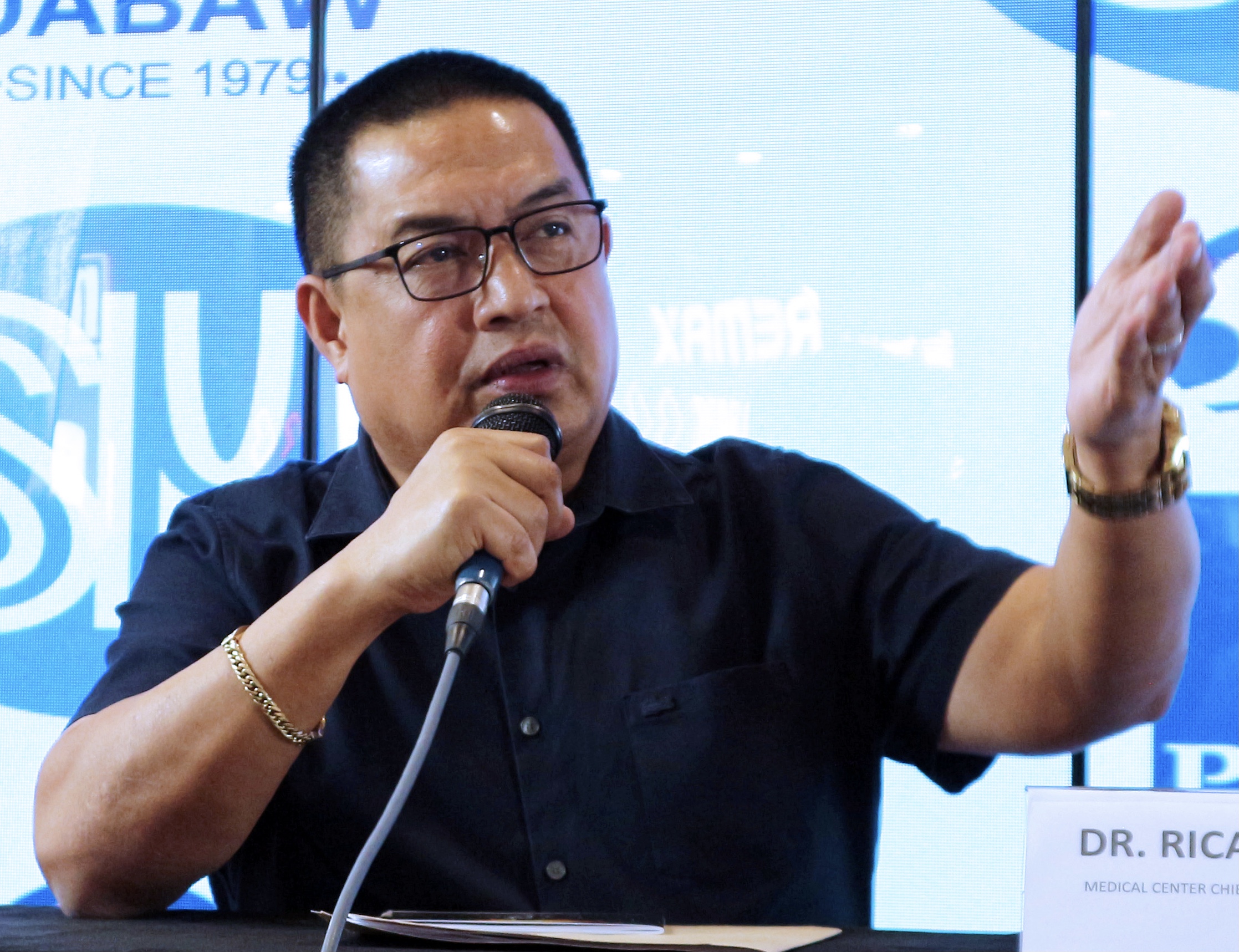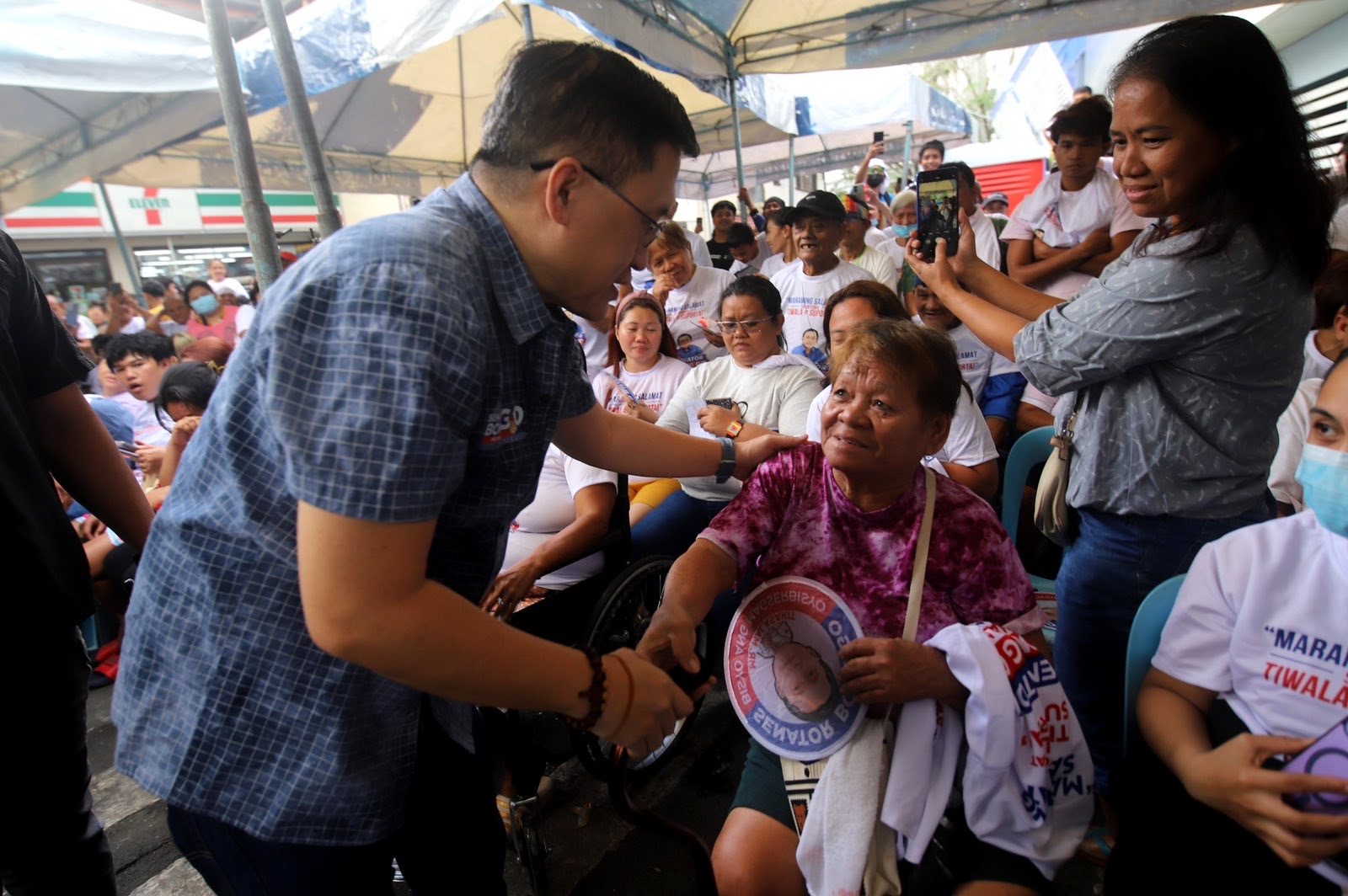- SPMC raises alarm over increasing HIV cases
By Ivy Tejano
DAVAO CITY – Eleven out of the 14 monkeypox (mpox) cases recorded at the Southern Philippines Medical Center (SPMC) are also individuals living with human immunodeficiency virus (HIV), a medical health officer confirmed over the weekend.
SPMC chief Dr. Ricardo Audan revealed during the Wednesdays Media Forum in a mall here that seven HIV-positive patients with mpox remain confined at the hospital, while four others—three of whom were mpox-negative—have already been discharged.
“We handled 14 mpox cases. Seven are still confined to the hospital. Of the seven discharged, two recovered from mpox, three tested negative, and two died—one confirmed with mpox, the other not infected,” Audan said.
Audan added that although only six patients were initially reported to be under treatment, one previously discharged patient returned after experiencing a relapse—a risk commonly associated with weakened immune systems.
The doctor said most patients are male with no recent international travel history, except for one, suggesting local transmission. He added that they believe the virus may have been spread through direct skin-to-skin contact, possibly sexual, though tracing exact origins remains difficult.
From January 1 to June 2, Davao City recorded seven confirmed mpox cases, based on data from the Emerging and Re-emerging Infectious Diseases Unit. Among 49 close contacts, 35 completed the 21-day observation without symptoms, while 14 remain under monitoring.
Audan assured the public that SPMC is equipped to manage infectious disease cases. “We are prepared, just as we were during COVID-19,” he said, citing their 19-bed isolation ward with negative pressure systems and trained personnel.
He emphasized that mpox is not airborne, though mask-wearing in crowded areas is advisable as a preventive measure. He advised the public to maintain hygiene, avoid high-risk contact, and seek medical help if symptoms, such as fever, rash, or swollen lymph nodes, appear.
Mpox timeline in the Philippines
Audan recounted that the country’s first mpox cases were detected in July 2022. Four cases were reported, all of whom recovered. The World Health Organization (WHO) declared mpox a public health emergency at the time, though this status was lifted in 2023.
He said the country recorded five additional recoveries in 2023, and noted 18 mpox cases were confirmed nationwide in 2024, none from Davao City.
Audan recalled that on April 10, SPMC admitted its first suspected mpox patient of the year, later confirmed positive. He said the hospital initially kept the case confidential to avoid public panic, but began reporting as cases gradually increased.
SPMC is one of the facilities tapped by the Department of Health (DOH) for mpox management, Audan said. He also advised smaller facilities to refer suspected cases to the SPMC if they lack resources.
Surge in HIV cases among Gen Z
Audan also echoed DOH concerns over the alarming rise in HIV infections, particularly among those born between 2001 and 2020.
“In the region, Davao City has the highest number of HIV cases, followed by Davao del Norte,” he said. Though the city is not among the country’s top five, he added that the trend is worrisome.
As of May 2025, the Philippines has 148,831 active HIV cases.
DOH Secretary Teodoro Herbosa said HIV infections have surged by 500 percent, with 57 new cases reported daily between January and March this year.
Audan stressed that HIV presents a far greater threat than mpox, noting that the Philippines currently leads the Western Pacific Region in new HIV diagnoses.





